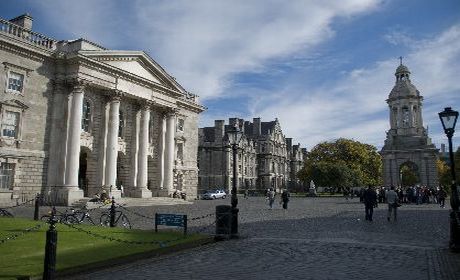BA PhysicsAdd to shortlist
Programme profile
Physics explores our universe in all of its diversity – from particles to planets, from crystals to chaos, from quanta to quasars and from superstrings to superconductors. Its applications are to be found in modern communications, in computers, lasers and many other technologies of vital importance. A physics degree will help you develop flexible skills in theory, data analysis and instrumentation.
Programme content
Students who wish to study Physics for their degree apply to the Science degree (and may select Physics as their specialist subject for the 3rd and 4th years).
Physics at Trinity College enjoys a worldwide reputation, and provides an exceptionally stimulating environment for study and for subsequent postgraduate research. In the fourth year you will carry out a three-month research project in a modern research laboratory either in Trinity College or at another institution in Ireland or abroad, and many find this part of the course particularly rewarding. Project topics ranged from photogalvanic effects in semiconductors, to monitoring of uranium enrichment, to computational analysis of climate models to biophysics of proteins.
Studies in physics cover experimental and theoretical training in core subjects, including:
Mechanics and special relativity
Electromagnetism
Quantum mechanics
Laser and modern optics
Solid-state physics
You will also take specialist courses in areas such as nanoscience, astrophysics, nuclear and elementary particle physics, superconductivity and computer modelling
Entry Requirements
Students must present six subjects of which two must be at grade C or above at Advanced GCE (A-Level. The other subjects must be at least at grade C or above on GCSE or Advanced Subsidiary GCE (AS) papers. The six subjects must include: English, Mathematics and a language other than English.
A-Level, at Grade C or above, in two of physics, chemistry, biology, mathematics, geology, geography or applied mathematics. Maths required at minimum of Grade B in GCSE
510
No
No
No
05 November
01 May

 Join us on Facebook
Join us on Facebook